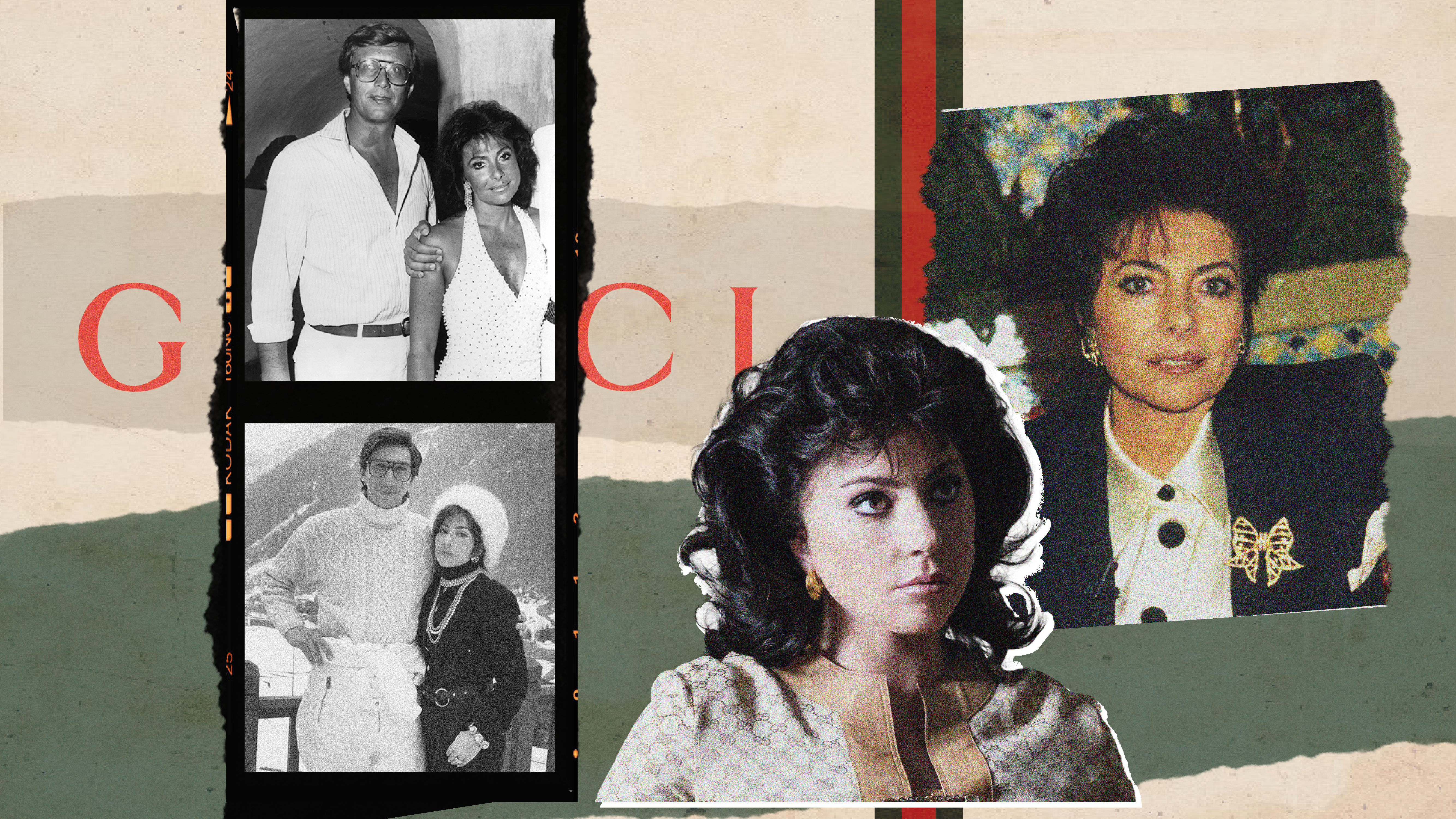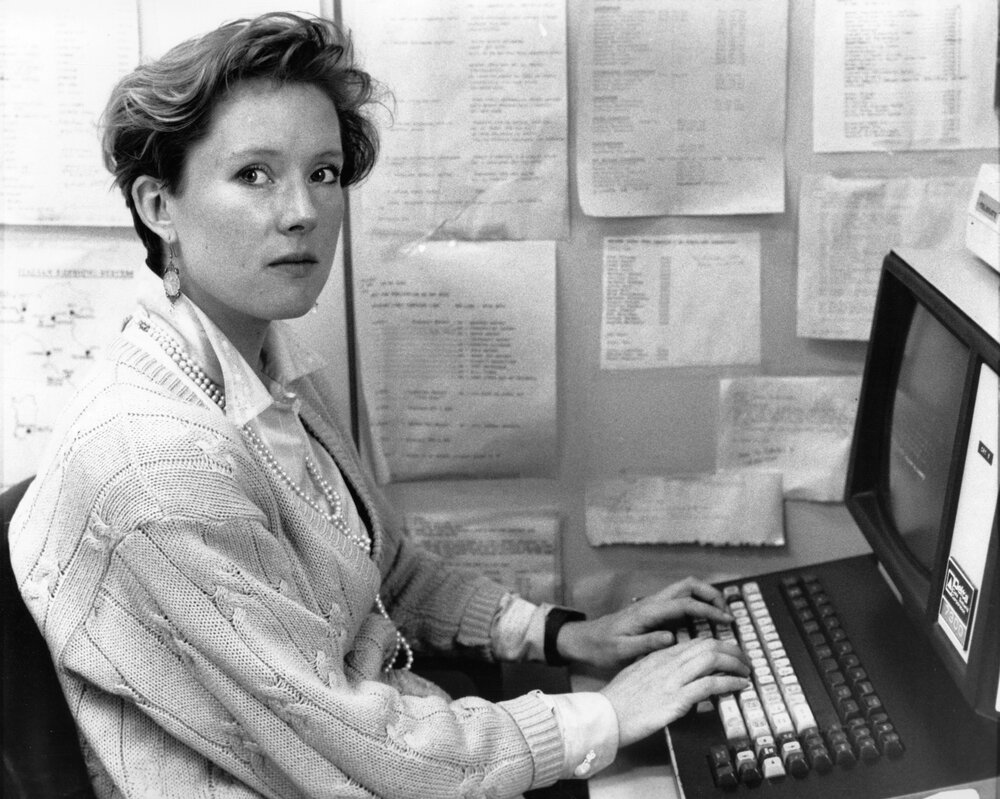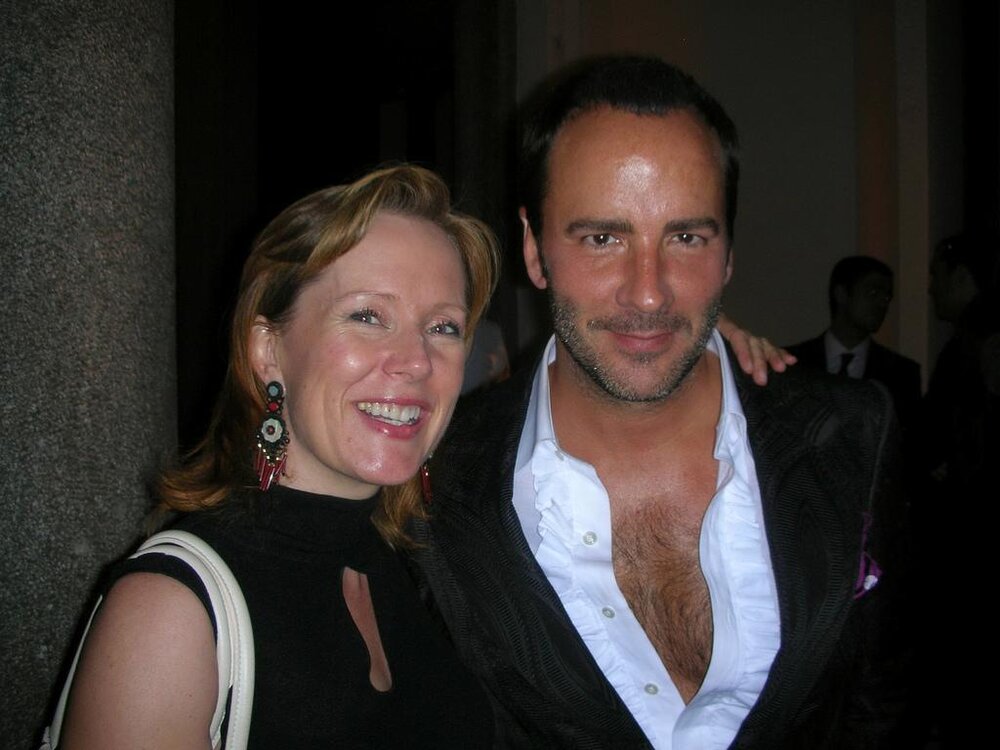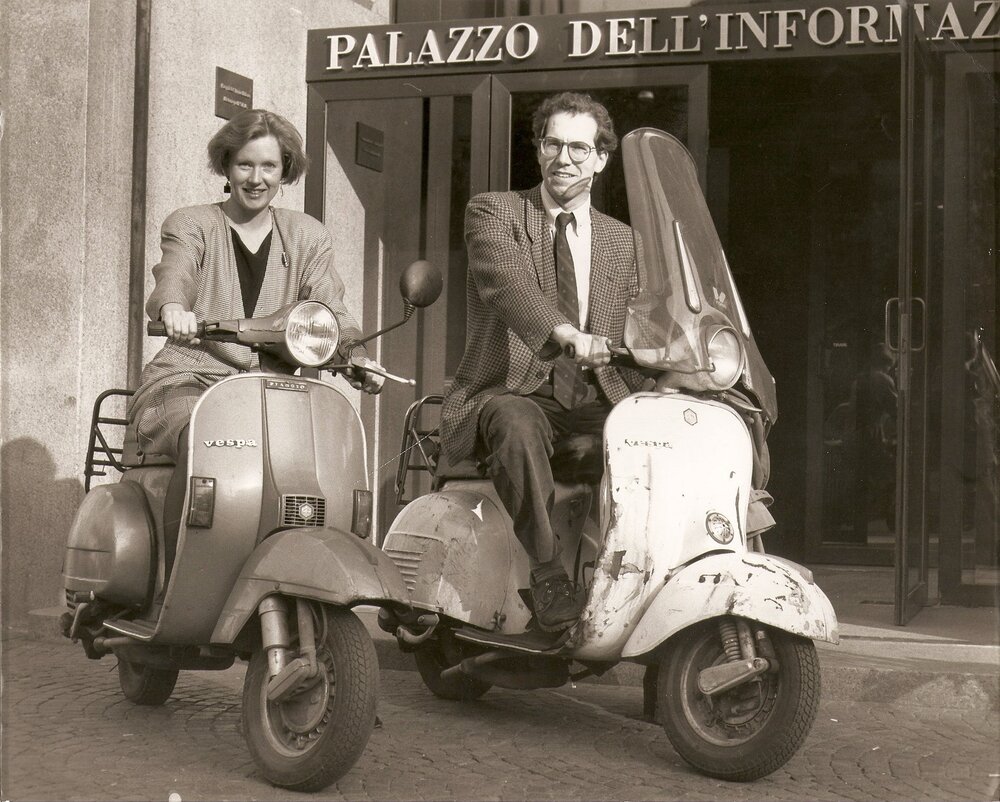
It’s no secret that Maurizio Gucci and Patrizia Reggiani’s relationship was destructive, especially after watching the award-winning film House of Gucci, that gave us a glimpse of their volatile relationship, before and after their divorce. After sitting down with the Sara Forden, we wanted to know more about the environment in Milan at the time of Maurizio’s tragic murder, and who better to ask than the woman who lived through the events and wrote an entire book about it? The New York Best Selling author also shared her personal thoughts on Patrizia, and whether or not she ever sympathised with her.

You were a fashion business reporter back when Maurizio was murdered in 1995. What do you remember about the Gucci brand at the time?
In those years, Gucci was not a frontier name. The thing that got my attention was when I went to Maurizio Gucci’s first press conference in 1991, where he announced that he had taken control of Gucci, he had bought out his relatives, he had brought in Investcorp, and was relaunching Gucci as Italy’s Hermès. He wanted to take it to the top of the luxury goods pyramid. He rattled off sales figures and he talked about the style. They hired Tom Ford and they started producing womenswear. His first collection for was a very classic, kind of Audrey Hepburn type of look. It wasn’t until after Maurizio was gone and Investcorp had bought him out that Tom Ford kind of hit with his very focused, sexy, edgy designs.

Was it public knowledge in Milan at the time that he had had problems with his ex-wife? Were no fingers pointed at her at the time?
That’s a great question because she had actually been very public about how angry she was. She had said to people at dinner parties, ‘will somebody kill my husband for me?’ To the point where her lawyer overheard her saying this and actually wrote her a cease-and-desist letter, and said she had to stop because it was serious. She had actually conducted a smear campaign in the media against him in ’93. I had actually gone to interview her at that time, because she had called up my editors and said she wanted to give an interview. It was a complete hit job on Maurizio. So we never ended up publishing the interview because it wasn’t in line with our editorial direction. But I had heard it firsthand from her, how angry she was. It was very clear that she was very personally attached, still to the company, even though at that time, they were divorced and she was no longer a ‘signora Gucci.’ But nobody really took her seriously, I think.

Did you ever at any point sympathise with Patrizia?
I think we can’t really sympathize with her. We can’t condone what she did. Everybody has choices and there are many other choices that she could have made. So I really want to draw a line there. But I think as a writer, and as a person, we can try to understand how the woman could get to the point where she got. So, as I’m portraying her character, I need to try to get inside her head, and sort of show what’s motivating her. So, I tried to do that, both through interviewing people who knew her and Maurizio, and knew their relationship. The prison authorities wouldn’t let me talk to her, but I wrote to her in jail. So we had a correspondence and she shared with me her feelings about Maurizio, in the early days. Then a lot of material came out about her in the trial, including a psychological evaluation, which goes to explain how she perceived the events in her life. The panel’s psychologists found that she had a narcissistic personality disorder, whereby when everything was going well for her, she was fine, but when life started to turn against her, the way she reacted, outsized her. She felt that things that maybe were not directed at her were personal, wrongs. So when Maurizio lost the company, she said things like, ‘he should not have done that to me.’ She perceived it as an attack on her, and then that fomented her anger and her obsession. She also had reason to be angry at him. I mean, when she went into the hospital, she had a brain tumor that ultimately was found to be benign, and she recovered from it, but he didn’t show up. So the hurt that she felt, I think that festered with her, and she said, even though weren’t married anymore, ‘I’m still the mother of his daughters, and how could he not come because I didn’t know if I was coming out alive?’
The Italian phrase is, chiaroscuro: black and white. One of the questions that I had was, was she evil? There were people who I interviewed who said that she’s evil, but then you go back and look at her story, and there’s also a reason she became the person that she became. Going into her very humble beginnings, and her mother pushing her to marry not only a wealthy man, but a man with a big name. Then she’s catapulted into this Milanese society, which is not a warm and fuzzy place. It’s almost, I would say, not cutthroat, but they’re very marked rules about how to behave and who to socialize with and she was considered from the wrong side of the tracks.









